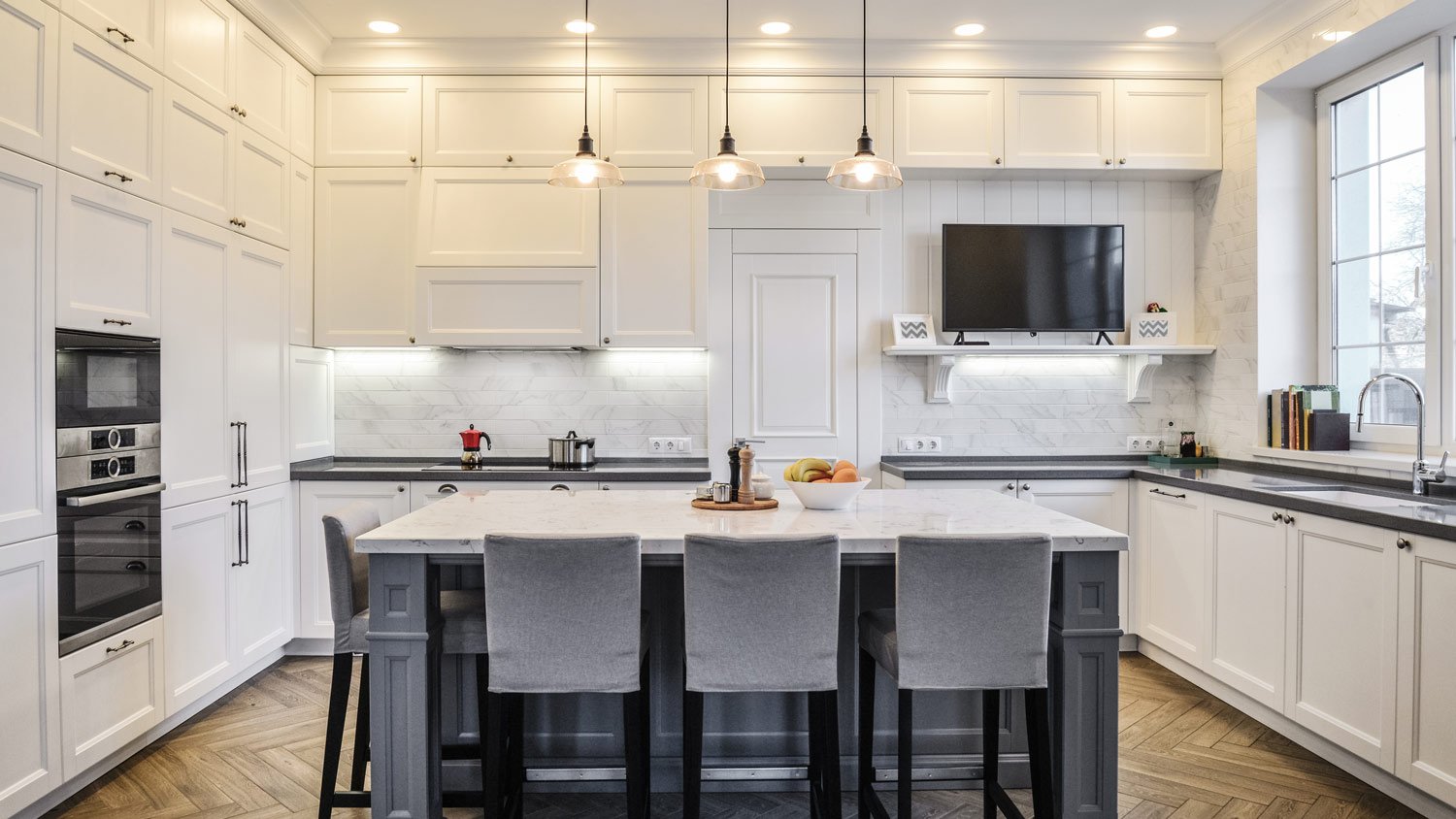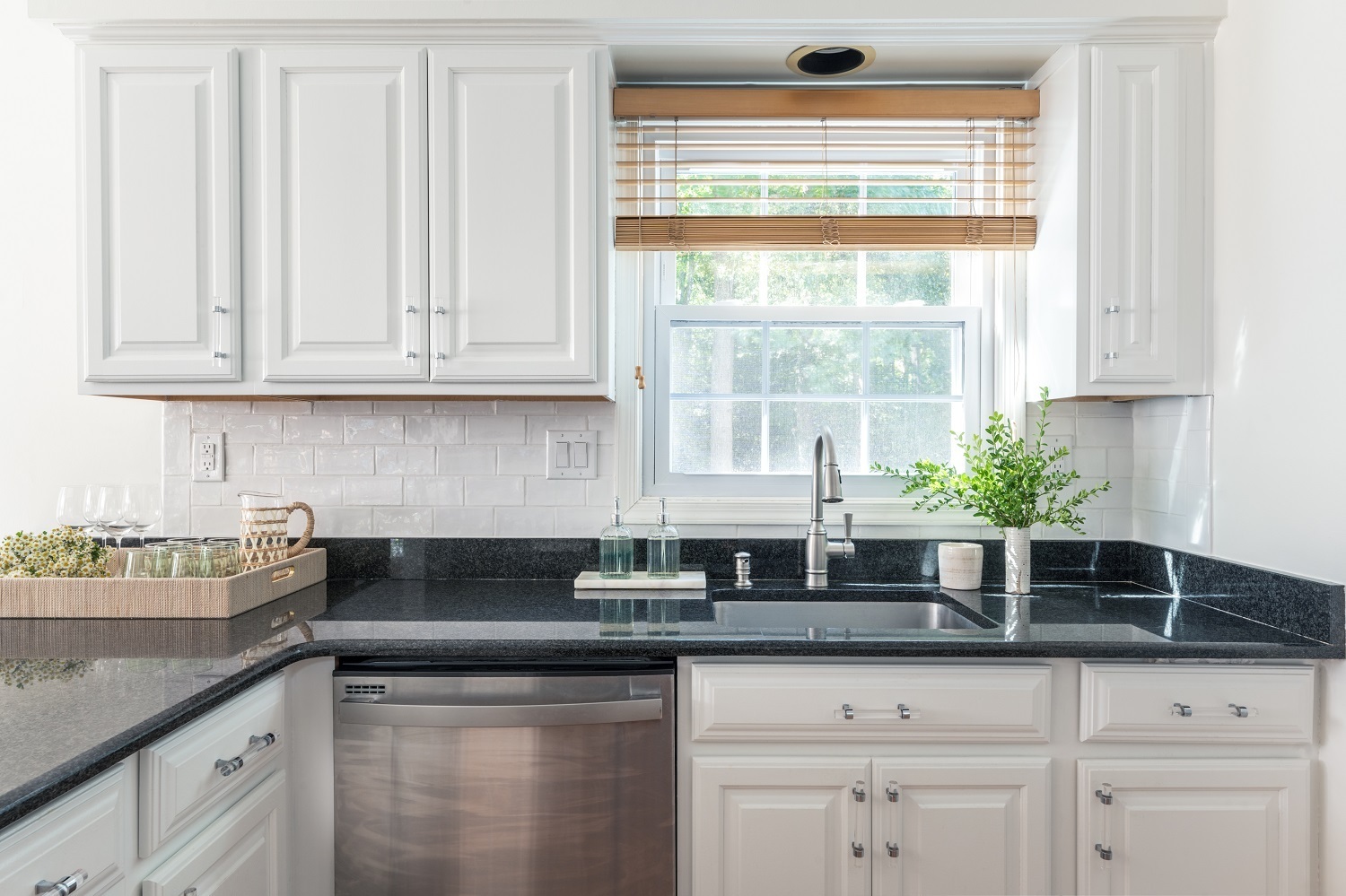How to Hire a Remodeling Contractor for Your Home Improvement Project
An expert hand can go a long way when it comes time to tackle a remodel


Remodeling a home is an exciting undertaking, but also a challenging one. While you may feel comfortable tackling small DIY projects like adding a fresh coat of paint to the walls, other home remodeling projects are best left to a professional. Thinking about hiring a helping hand? Learn how to hire a remodeling contractor to turn your dream project into a reality.
What Services Does a Remodeling Contractor Offer?
The type of remodeling contractor you hire will depend on your unique remodeling needs. While many remodeling contractors are multitalented, some may specialize in specific rooms (such as bathrooms) or a certain skill (installing complex tiles). Some examples of services remodeling contractors offer include:
Kitchen renovations: Full-scale kitchen remodels, including cabinet installation, countertops, plumbing, and electrical work.
Bathroom remodeling: Updating bathroom fixtures, installing new tiles, and handling plumbing improvements.
Home additions: Expanding homes by adding rooms or extra floors, including foundation work and structural adjustments.
Basement finishing: Transforming an unfinished basement into a usable living space, including insulation, drywall, and flooring.
Exterior remodeling: Updating siding, windows, doors, or building outdoor spaces like patios and decks.
Roofing services: Repairing or replacing a roof to improve home safety and energy efficiency.
Flooring installation: Installing hardwood, tile, carpet, or other flooring materials to revamp a home’s interior.
Energy efficiency upgrades: Adding insulation, updating windows, or making other energy-efficient modifications to reduce utility bills.
Custom built-ins: Crafting and installing custom shelving, cabinetry, or entertainment centers to enhance storage and design.
Many people use the terms 'remodel' and 'renovation' interchangeably, but they're actually different types of projects. A remodel is larger than a renovation and changes an existing space's structure, design, or functionality. A renovation is more cosmetic. You can think of it like this—a renovation makes something old look and feel new, while a remodel makes something new out of something old.
Tips for Hiring a Remodeling Contractor

When it’s time to hire a remodeling contractor, taking these steps can make the process less stressful and can directly impact the project's success.
1. Plan Your Home Remodel Project Ahead
Before you even start calling contractors, it’s a good idea to have a clear picture of your remodel goals. Having a well-thought-out plan will make conversations with contractors more productive and help ensure you get accurate quotes.
Be ready to share the following details with potential remodeling contractors to get the most accurate quotes and project timeline estimates:
Size of the project: Determine how large the renovation area is, whether it’s a single room or an entire floor.
Materials: Have an idea of what materials you prefer, such as hardwood vs. laminate flooring or granite versus quartz countertops.
Budget: Set a budget that includes a contingency for unexpected expenses.
Timeline: Know how long you’re willing to have contractors working in your home, keeping in mind the potential for delays.
2. Check Your Remodeling Contractor’s Qualifications and References
A qualified contractor will have the necessary licensing, insurance, and bonding to legally and safely perform the work. Always request this information and confirm it's up-to-date before letting anyone begin work on your home.
It’s also a great idea to ask for references from past clients. Asking for photos can also give you a good sense of the contractor’s quality of work.
3. Interview Pros and Get Multiple Quotes
Once you narrow down your list of potential contractors, interview a few and compare quotes, work styles, and overall compatibility. While one contractor may give you a lower quote, another might offer more insight or experience for your specific project.
Getting multiple quotes helps ensure you’re not overpaying and gives you a range of pricing for your project. You’ll also learn more about the contractor’s approach and how they plan to tackle the job. During the interview, ask specific questions about their experience with similar projects and assess their communication skills to gauge how well they can work with you.
4. Get a Contract Settled
After choosing a contractor, you must have a detailed remodeling contract that outlines every aspect of the project, from start to finish. A good contract should include:
Project scope: Detailed description of the work, materials, and services to be provided.
Timeline: Start and expected completion dates.
Payment schedule: Breakdown of payments, including the remodeling project deposit, progress payments, and final payoff.
Warranties: Any warranties on work or materials should be listed.
Dispute resolution: Steps to resolve any disagreements during the project.
Questions to Ask a Remodeling Contractor
Let’s circle back to the interview stage. Ask your contractor the following questions to shed some light on the process and what they are like to work with.
Are you licensed and insured?
Can you provide references from similar projects?
What is your payment structure?
How long will the project take?
What is your experience with [specific type of project]?
Who will be working on the project? Will you use subcontractors?
How do you handle unforeseen issues or delays?
Do you have experience with permits and local building codes?
Can you provide a detailed written estimate?
What is your warranty policy for both labor and materials?
Choosing the Right Remodeling Contractor
When you hire a home remodeling contractor near you, you’re investing in your family’s happiness and your home value. This is why choosing the right remodeling contractor can make or break your home improvement project. Hiring a qualified, experienced, and reputable professional ensures that the job will be completed to your satisfaction and within your budget.
Read online reviews to get a sense of customer satisfaction and ask your friends and neighbors for referrals. Once you’ve narrowed down a potential list of prost, vet the candidates thoroughly, request multiple quotes, and carefully review contracts before signing anything.
After Your Remodeling Contractor Has Finished
Once your remodeling project is complete, there are a few final steps you should take to ensure everything is in order:
Make the final payment: After inspecting the completed work and ensuring all agreed-upon tasks are finished, you can make the final payment as outlined in the contract.
Leave a review: Help other homeowners by leaving a detailed review of your contractor’s work. This will benefit the contractor and give future clients valuable insights.
Maintain the remodel: Follow any maintenance tips provided by the contractor, especially for new materials or appliances that may need regular care.
A home remodel is hard work, even if you hire help, so don’t forget to enjoy your new space once the dust literally settles.





- Bathroom Remodeling
- Kitchen Remodeling
- Shower Installation
- Stair Installers
- Bathtub Installation
- Shower Door Installers
- Kitchen Design
- Bathroom Design Companies
- Storm Shelter Builders
- Pre-Made Cabinets
- Kitchen Refacing
- Bathtub Replacement
- Ceiling Tile Installation
- Suspended Ceiling Companies
- Residential Designers
- Stair Builders
- Remodel Designers
- Shower Enclosures
- Home Renovations
- Kitchen Renovations
- Garage Remodeling
- Grab Bar Installation
- Walk-In Tub Installers
- Tub to Shower Conversion
- Balcony Contractors
- How to Find the Right Remodeling Contractor
- How to Hire a Kitchen Remodeling Contractor
- A Crash Course for Hiring a Contractor
- Top Tips on Hiring the Perfect General Contractor for Your Next Project
- What to Know Before Hiring a General Contractor to Build a House
- What Questions Should I Ask Before Hiring a Contractor?
- How to Remodel a House on a Budget
- 9 Important Questions to Ask Bathroom Remodeling Contractors
- Planning a Remodeling Project? Here’s Where to Start
- 12 Valuable Questions to Ask a Contractor











